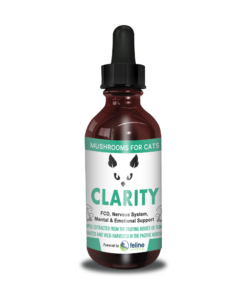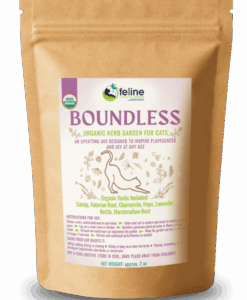No one wants a home with bugs, but when it comes to pest control around cats, many don’t realize the dangers lurking in common pesticides. Even those labeled “pet safe” can contain chemicals that build up in a cat’s body over time, leading to potential health issues.
How Pesticides Affect Cats
Cats are vulnerable to chemical toxins because their liver isn’t designed to process chemicals the way a human can. When pesticides are sprayed around the home, cats inevitably inhale, absorb, and ingest these substances.
Here’s how exposure happens:
- Inhalation: Cats explore the world with their noses. If pesticides have been sprayed anywhere your cat can access, they will breathe in chemical residues.
- Absorption: Pesticides settle on surfaces, including floors where our cats walk. These chemicals are directly absorbed through the paw pads and ingested while grooming.
- Direct Ingestion: If pesticides are sprayed near food bowls, water dishes, or favorite lounging spots, cats can ingest these chemicals directly.
Over time, exposure to even small amounts of toxins can lead to chronic health problems such as liver stress, neurological issues, respiratory problems, and even cancer.
Common Household Pesticides to Avoid
Many think they’re making a safer choice by using products labeled “pet safe”. The problem is, these still contain chemicals that can accumulate in your cat’s bodies. Some of the most concerning ingredients found in common pest control products include:
- Pyrethroids & Pyrethrins – Found in sprays and foggers, these chemicals are highly toxic to cats. Exposure can cause tremors, seizures, or even death.
- Organophosphates & Carbamates – Often used in insecticides, these can cause nausea, drooling, weakness, and respiratory distress.
- Neonicotinoids – Common in flea treatments and pest control products, these chemicals affect the nervous system and can lead to long-term toxicity.
Almost every over-the-counter pest control contains ingredients that should never be used around cats.
Natural Alternatives for a Bug-Free Home
The good news? You don’t have to choose between a pest-free home and your cat’s health. Here are some safer, natural alternatives to chemical pesticides:
- Diatomaceous Earth (DE): Food-grade diatomaceous earth is an excellent natural pest deterrent. It dehydrates insects like fleas, ants, and roaches but is completely safe for cats when used properly.
- Plant-based pest products: Natural products made with pest repelling herbs and plants have proven to cut down on unwanted bugs and keep your cats safe.
- Cedar & Neem-Based Repellents: These natural ingredients deter bugs but are safe for cats when used in appropriate formulations.
- Keeping It Clean: Regularly vacuuming, sealing food in airtight containers, and keeping the home dry can go a long way in preventing unwanted pests.
Pest control is necessary in some homes, but it’s equally important to consider the long-term health of your kitties. By avoiding chemical-laden pesticides and choosing natural, cat-safe solutions, you can protect your home from bugs without putting your cat’s health at risk.




Recent Comments